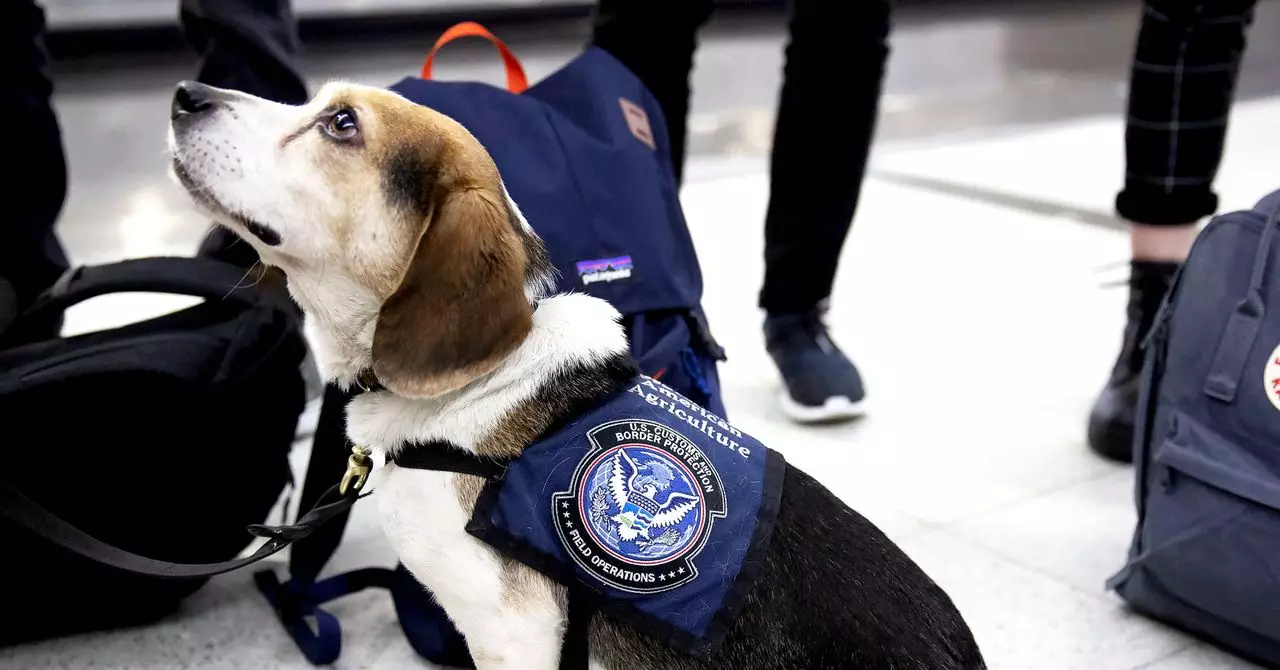In an alarming turn of events last month, Derek Copeland, a dedicated trainer at the USDA’s National Dog Detection Training Center, was unexpectedly dismissed amid sweeping staff reductions that have hampered the effectiveness of U.S. agricultural protection efforts. Copeland’s role involved training canine units, particularly beagles and Labrador retrievers, to detect invasive species and pathogens, including the notorious Giant African land snail threatening Florida’s agriculture. This incident marks only the tip of the iceberg regarding the potential repercussions of recent staffing cuts within the USDA. These cuts have not only jeopardized the integrity of agricultural inspections but have fundamentally dismantled teams essential for managing threats posed by invasive species and zoonotic diseases.
The USDA has lost around 6,000 employees, a staggering figure that includes nearly a fifth of its specialized trainers. Such reductions suggest a disquieting disregard for the critical roles these experts play in safeguarding U.S. food supply chains from invasive species. Copeland recalls the urgency of training dogs to handle species that many citizens remain oblivious to, expressing his deep concern that the public does not grasp the extent of invasive threats entering the nation. The current situation raises questions about accountability and the foresight of those orchestrating these staffing decisions, indicating a problematic prioritization of efficiency over expertise.
The Ripple Effects of Staff Reductions
The fallout from these layoffs extends far beyond the immediate loss of experienced personnel. Several essential programs, such as Plant Protection and Quarantine, have been devastated by these staffing cuts. With hundreds of inspectors eliminated, the burden on remaining employees is crushing. Former colleagues note that those still on the job operate with an overwhelming sense of dread. With advanced degrees and specialized training, these professionals are not easily replaced, particularly by automated systems or artificial intelligence.
Mike Lahar, a regulatory affairs manager at a major customs brokerage, articulated a harsh reality: the individuals removed from the USDA are not just typical staff—they represent a wealth of knowledge and expertise that cannot be replicated or substituted at a moment’s notice. The consequences of replacing skilled inspectors and entomologists with a skeletal crew can manifest as countless rotting shipments of food, rising grocery prices, and heightened risks of invasive species infiltrating the ecosystem—a perfect storm that threatens the very foundation of food security in the United States.
Realities of Supply Chain Disruption
The ramifications of these reductions ripple through the intricate web of agricultural supply chains, with dire implications for import management. Experts in the field, like Joe Hudicka, emphasize that the absence of rigorous food inspections translates to spoiled goods that ultimately waste resources. Furthermore, ports such as Los Angeles and Miami, critical gateways for significant volumes of imported agricultural products, have experienced substantial decreases in inspection capabilities, further underscoring vulnerabilities within the U.S. borders.
When resources dwindle, the risk of invasive species entering the country increases, leading to potential ecological disasters. The recent cuts leave agricultural diseases and pests unmonitored, representing a ticking time bomb that could have catastrophic repercussions for farmers and consumers alike. The delicate balance of the food supply chain, already strained by external pressures such as bird flu and tariffs, faces an unmanageable strain with these staff losses.
The Urgent Need for Reassessment
Amid the backdrop of hasty budget cuts, it is increasingly clear that policymakers must reassess the long-term implications of dismantling specialized teams like those within the USDA. The potential fallout of such decisions is far-reaching, with threats to food security, increased consumer prices, and ecological damage looming large. The focus on efficiency and cost-cutting disregards the vital need for expertise in protecting national interests.
As citizens, we cannot afford to overlook the complexities of agricultural safety monitoring. The integrity of our food supply, agricultural sustainability, and environmental health all hinge on the diligence and expertise of dedicated individuals like Derek Copeland. The current strategy must evolve to prioritize the retention and training of skilled personnel who can adequately address the multifaceted challenges posed by invasive species and Zoonotic diseases. It is paramount that we advocate for a future where expertise is valued, and our agricultural ecosystem is rigorously protected from all threats.

